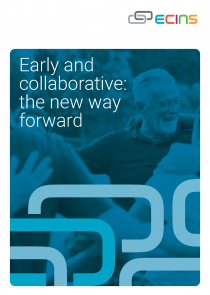Everyone has the right to live in safety, free from abuse and neglect. But issues that can lead to an adult or young person becoming vulnerable can be complex and multidimensional.
A number of Government reports have reiterated the need for agencies to work together to ensure that safeguarding decisions are based on a comprehensive understanding of each individual.
Sharing information securely has several benefits for all involved. Not only does it improve the accuracy of risk assessments, but also it saves money by reducing duplicated effort. By joining the dots across a region, you can avoid cases getting ‘lost’ and falling through the gaps.
In an effort to increase the level of coordination, many areas of the UK have established Multi Agency Safeguarding Hubs (MASHs) and Multi Agency Risk Assessment Conferences (MARACs). These improve cohesion between teams by giving practitioners a secure forum to discuss the needs of vulnerable individuals. Victims and vulnerable persons can have complex needs.
For teams to work effectively there needs to be a clearly owned partnership strategy and an accessible secure platform to enable the needs of vulnerable persons and victims to be identified and addressed by all agencies.
What are Community MARAC’s?
Community MARACs are a Multi-agency Risk Assessment comprised of those public service agencies best suited to help resolve community concerns. Their purpose is to create an environment for experts and specialists to collaborate with a range of partners to design a personalised risk reduction plan to address the problem at hand. Frequent attendees at CMARACs often include Fire, Ambulance, Local Authority, housing, social services, troubled families, drug and alcohol services, mediation, police, community teams, mental health services, as well as third sector organisations, such as Victim Support, Registered Social Landlords, and various charities. They can also include other specialist agencies, depending on specific needs.
Any organisation who sits at the CMARAC table can refer a case into the process. There are no fixed risk thresholds for referral and complex cases which do not fall immediately or easily into established categories are welcomed.
Partnership Approaches to Support Victims and Vulnerable Persons
The CMARAC’s multi-agency approach and specialist input promotes an ethos of joint ownership, accountability and credibility amongst its membership and, due to the diverse range of organisations involved, encourages creativity and innovation. There is a sense of trust and value in those that participate which culminates in an environment for true and effective problem solving and resolution.
CMARACs aim to put an end to the ‘pinball’ effect of referral and re-referral of vulnerable persons to a range of different support agencies by ensuring partnerships collectively identify options and tactics to target high risk subjects and protect vulnerable victims. They can also find better ways to manage an offender through options including criminal justice, diversion and support. Collaboration between public services provides opportunities for early intervention which can help to identify and target issues before they materialise, minimising costs and improving people’s life chances.
Common Factors of Referrals:
• Often both victim and perpetrator
• Links with MH, personality disorder
• Vulnerable adults living alone who are befriended • Repeat callers to services displaying paranoid behaviour of psychotic behaviour
• Those with unmet Mental Health needs who refuse to engage with support services • Complex needs of hostel residents presenting safeguarding issues to safety of residents and staff
• Vulnerable adults in mainstream housing but in need of supported/ sheltered housing
For more information about CMARACs contact paul@empowering-communities.org


